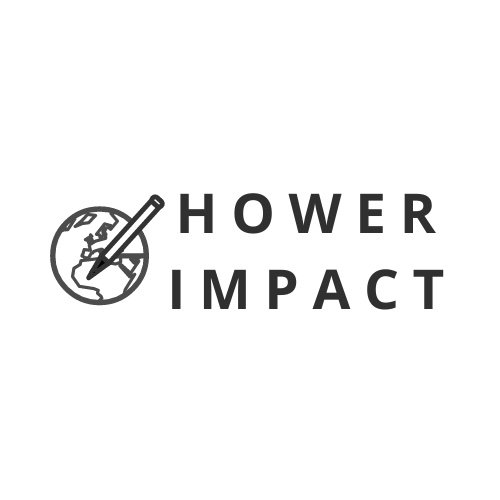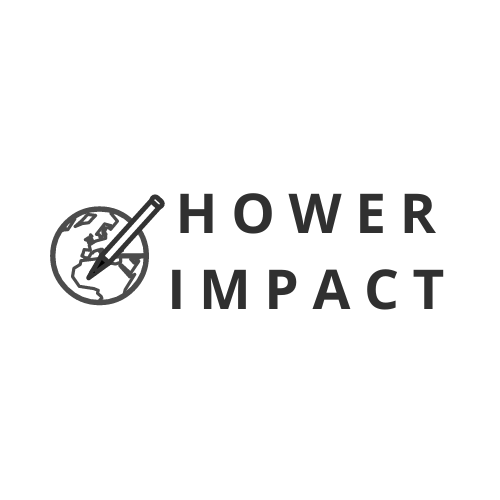Thoughts on breaking into a career in corporate sustainability
Breaking into a career in corporate sustainability isn’t easy. To help folks trying to break in, I organize monthly “Connection Sections” where I provide free career advice and insights. During my November 2023 call, I gave about twenty aspiring sustainability professionals some career tips, speaking about my own career journey and insights into the future of the sustainability communication profession. I edited this hour-long session down into a digestible video to give you the highlights. Watch the video, or read the transcript below.
Well, we’ve got a nice group today. Lots of people from different parts of their careers, parts of the country, parts of the world. One of the things I love most about having these sessions is that people want to work in sustainability all over the place.
It's really cool to see the different people and why people pursue this path. And again, these connection sections were designed to create a safe space for us to talk about these challenges of breaking into sustainability. And even once you're in sustainability, it's not necessarily easy to navigate a career.
I talk to a lot of people who are already quote, unquote established, and they're still not sure where they're heading with their career. You're not alone if you're feeling a little bit lost. Hopefully today we can have a nice little chat and help you .
My career path, like many in sustainability, wasn't linear at all. I actually didn't even know sustainability was a path when I was in college. I graduated in 2009, which was a wonderful time to graduate, during the Great Recession. And I was a political science undergrad and actually was thinking about going to law school.
Luckily, I backtracked on that and didn't go that path because I know I wouldn't have enjoyed it. I ended up at a marketing agency in San Francisco that worked with a lot of climate tech companies. I was working with some solar clients, energy efficiency clients.
That was kind of the first time I saw this connection — okay, you can make a difference and make a living. I still wasn't aware of corporate sustainability and we weren't even talking about ESG back then. I did that for about two years and then left to go spend a year in South America and Colombia, volunteering teaching in a poor part of Bogotá .
During that year, I saw for the first time the intersection of social and environmental justice — I visited some islands in the Caribbean that were going to have to be evacuated as the sea level rose and really saw that the climate crisis is here. And this was 2011 — even for those of us who believed in climate change, it was still seen as something that was going to happen in 80 years or a hundred years and not something that was going to happen now. When I got back, I got into journalism. So I was writing for Sustainable Brands, GreenBiz — I still write for GreenBiz occasionally— and a couple other publications. And then I ended up doing grad school in DC, where I was thinking about going the environmental policy route for a minute. My master's was in sustainability communication with a focus on public affairs. And then I came back to the Bay area and worked at Edelman, which is a big global marketing communications agency. So, I was working with some big clients like the North Face and HP and some others. And then I ended up doing a stint at a climate tech company. And then I was at a small agency and then, about nine months ago, I decided to go off on my own.
And I've been doing — and I don't know if you have been seeing this on LinkedIn — people are calling themselves fractional executives. So, that's what I've been pursuing the last nine months. Calling myself a fractional sustainability communications executive. I'm embedding with some companies. Like right now I'm working with Mars, for example, on a lot of cool sustainability net zero projects. And picking up projects here and there.
And also I started teaching a Writing for Impact masterclass. So, bringing a lot of the things that I like to do and that I'm good at to help people improve their sustainability communication. It's funny cause the way I describe it now, it sounds like my career was super easy, but it really wasn't at the time.
I really did struggle in those early days — especially when I got back from Colombia. It took me a while to even figure out what I wanted to do. And there weren't as many jobs back then that even were called sustainability. And it was a lot more CSR back then — like more on the social impact side.
And I would say the best advice I give people is that the dots connect in retrospect. Right now it might feel like: “what am I doing? I have no idea what I'm doing with my life. What's happening?” But you gotta keep trying and eventually you'll look back and you'll be like, wow, okay. I got to where I am because I did this, this and this. And even though at the time that you're doing it, it feels like chaos — you'll get to this point where you look back, you're like, oh yeah, I did do a lot of great things and now I am where I am because of that.
Perspective is hard to find when you're first starting out, for sure, because you haven't done a lot of different things yet. So, that's something I would definitely tell myself even 10 years ago when I was having a little freak outs — that it's going to be okay. You just got to stay the course and you're going to end up where you don't expect, but you have to believe in the process.
I think we all learn that there is no silver bullet for this. You got to just do everything — the job boards are not necessarily going to guarantee you a job, but I know people that have found jobs that way. Networking is super important too because a lot of times these jobs aren't posted publicly right away.
Most of the time, it's not about you. You can take feedback as data points, but don't kick yourself too hard. Half the time if you didn't get the job, it has nothing to do with and so you kind of just have to kind of take it and move on. And building that resilience is critical. I think even while you're working, you're going to be dealing with failure and rejection constantly. So, learning how to just let it slide off is really important.
I always say “worry less about the skills and worry about your personal narratives, whatever it is” because whether it's a product, a person or service, we buy stories. When you hire someone, you're hiring the story that they created. The skills are the supporting details of that story. But I would say, how would you create your personal narrative around what you do and what you want to do and what you can do?
So, people are more inclined to be like, “what's the story around Mike? Oh, Mike's a sustainability storyteller. Does this and that.” They don't ask me what are all the specific skills that I have? I mean, maybe eventually they would, but the story is really what matters. I would say spend some time on that and think about how you present yourself on LinkedIn, but even just how you talk about yourself in interviews — what are you about?
Sustainability communication has evolved a lot, even in my time so far working in the real world. Its origins were more in CSR and corporate philanthropy. And what's happened in the last five to 10 years in particular is that it's evolved to be less about PR and looking good and just like how we authentically communicate our sustainability journey both internally and externally.
Even in the past year, it has gone to the next level. Now that lawyers at companies care about this, all of a sudden money is available for comms people. And, and that's the niche that I've been filling. The sustainability team generally aren't great communicators. The comms people don't usually get sustainability very well. I'm that in between guy who can speak to both worlds. And I think that increasingly is going to become something companies need.
And especially from a consultant perspective, that's why my clients hire me. They're like, “Oh, Mike can speak both worlds. So come in and help us.” And even as simple as making sure that this press release we send out is not going to get us sued. Because we're saying the wrong things. Or also we're not going to look dumb. You guys have heard of green hushing, greenwashing — I'm trying to coin this term called “greenbumbling,” which is when somebody makes a sustainability claim that’s accurate, but boring. It happens a lot. It's sort of in the same vein as greenwashing, I guess, but it's when companies make claims thinking it's truthful and they think it's exciting, like, “Hey, we set a net zero goal,” — but everybody's doing that. But the marketers are so not in the weeds on this that they don't realize that it's not interesting and that it's not exciting. And so you're going to need more and more comms people who understand the nuances.
All right. Well, thanks, everybody. Have a good weekend and Happy Thanksgiving.

